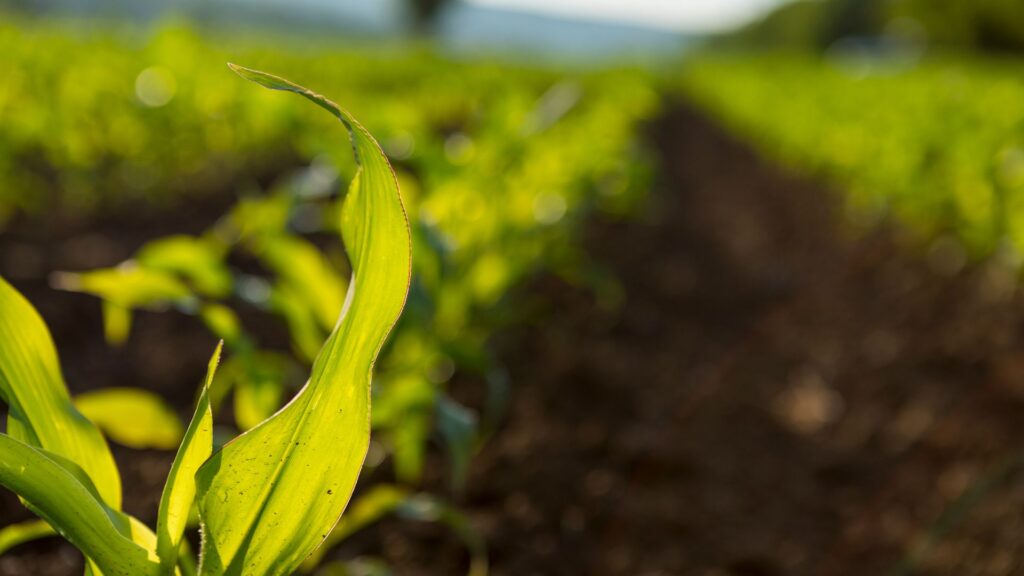Climate and Competitiveness: Can SMEs Navigate the EUDR and Maintain Their Agro-Export Leadership?
The New Era of Climate-Driven Trade The global trade landscape is undergoing a fundamental transformation where climate considerations are no longer optional—they have become essential competitive factors. Since December 30, 2024, large and medium-sized companies exporting agro-industrial products to the European Union have faced a new reality: compliance with the EU Deforestation Regulation (EUDR), which prohibits the entry of products linked to deforestation. Starting in June 2025, this requirement extends to small and medium-sized enterprises (SMEs), marking a pivotal moment where the climate agenda materializes as a concrete element of industrial competitiveness rather than merely an environmental consideration. Understanding the EUDR: A Global Response to Forest Loss The EUDR emerges from a critical global context that demands urgent action. According to the FAO, more than 420 million hectares of forests were lost worldwide between 1990 and 2020—an area larger than the entire European Union. Agricultural expansion has been the primary driver of this deforestation, with profound impacts on biodiversity, rural livelihoods, and climate stability. As one of the world’s largest consumers of agricultural and forest products, the EU has taken responsibility for limiting its external ecological footprint through this pioneering regulation, which forms a central pillar of the European Green Deal’s commitment to climate neutrality by 2050. The EUDR applies to seven critical commodities and their derivatives: palm oil, cocoa, coffee, soy, timber, beef, and rubber. This encompasses everything from chocolate and leather to furniture and paper products. To access EU markets, companies must demonstrate compliance with three fundamental requirements: Deforestation-Free Production: Products cannot originate from land deforested after December 31, 2020, with specific protections against forest degradation for timber products. Legal Compliance and Geographic Traceability: Companies must verify that production complies with all relevant laws in the country of origin, including land tenure, labor rights, and environmental regulations. Crucially, they must provide precise geographic coordinates of production sites. Comprehensive Due Diligence: Organizations must implement robust systems to assess and mitigate risks throughout their supply chains, with documentation requirements maintained for at least five years. The Latin American Challenge and Implementation Reality For Latin America and the Caribbean (LAC), the stakes are substantial. In 2022, the region exported over $157 billion to the EU, with approximately $53 billion from the agribusiness sector. More than 60% of these agro-exports—at least $32 billion—fall under EUDR regulation, meaning the majority of the region’s agricultural trade with Europe must now meet these new standards. The challenge varies significantly by product and country. Coffee exports from Colombia, Brazil, Honduras, and Peru generated $7 billion in sales, spanning from green beans to gourmet products. Cocoa from Colombia, Ecuador, Peru, and the Dominican Republic reached $2.6 billion in beans, butter, paste, and finished products. Brazil and Mexico led timber exports with $4 billion in boards, furniture, paper, and cardboard products. Following a 12-month delay granted in late 2024, the EUDR now applies from December 30, 2025, for large companies, and June 30, 2026, for micro and small enterprises. This adjustment provides crucial additional time for preparation, but the window for action is narrowing rapidly. Despite this extension, significant implementation challenges remain on the EU side, including the absence of a unified digital system for due diligence declarations and delayed country risk classifications. The EU must also better recognize existing certifications and platforms in producing countries to avoid duplicating bureaucratic processes and increasing transaction costs. Strategic Response: From Compliance to Competitive Advantage For companies to maintain their competitive position, immediate action across multiple fronts is essential. Supply chain mapping must identify all products within EUDR scope and trace them back to their geographic origins, including precise coordinates of production sites. Legal verification ensures comprehensive compliance with local laws governing land tenure, environmental management, and labor standards in all source countries. Technology integration through georeferenced traceability systems provides the detailed documentation required for due diligence processes, while systematic risk assessment approaches evaluate and mitigate deforestation and illegality risks across the entire supply chain. Strategic partnerships with technical organizations, certification bodies, and technology providers help build robust compliance systems. While certifications such as FSC, Rainforest Alliance, and UTZ can support compliance efforts, they do not replace the mandatory due diligence system required by the EUDR. Companies must build comprehensive systems that may incorporate these certifications as supporting evidence. Smart companies recognize that EUDR compliance represents more than regulatory obligation—it’s a pathway to sustainable competitive advantage. This transformation was inevitable, driven not only by the EU’s commitments under the 2015 Paris Agreement to combat climate change, but also by growing consumer demands for responsible sourcing. Regardless of the regulatory angle, deforestation-free production has long been a pending task for global supply chains. As global markets increasingly value environmental and social responsibility, early movers who invest in robust systems will differentiate themselves from competitors while accessing premium market segments. This transformation also supports broader development goals, including the formalization of agricultural systems, improved traceability infrastructure, and enhanced environmental stewardship that benefits local communities and ecosystems. Success requires coordinated action beyond individual company efforts. Governments in producing countries must strengthen legal frameworks and enforcement mechanisms while the EU must ensure fair, practical implementation that recognizes regional realities and existing capabilities. The most promising outcomes will emerge from partnerships between producing countries and the EU that build on existing strengths rather than imposing entirely new systems, creating compliance pathways that are both rigorous and achievable. An Opportunity to Accelerate Sustainable Transformation While the EUDR presents a significant challenge, it also offers an opportunity to accelerate the formalization, sustainability, and traceability of production systems. Those who prepare in advance will not only avoid commercial risks, but will also gain a competitive edge in a market that increasingly values environmental and social responsibility. At Green Initiative, we support our partners and clients in aligning with EUDR requirements through our technological and analytical tools. For instance, our geospatial analysis enables the verification of deforestation-free status by providing historical land-use evidence, helping demonstrate that no forest loss has occurred after the December 2020 cut-off date. Additionally, by


